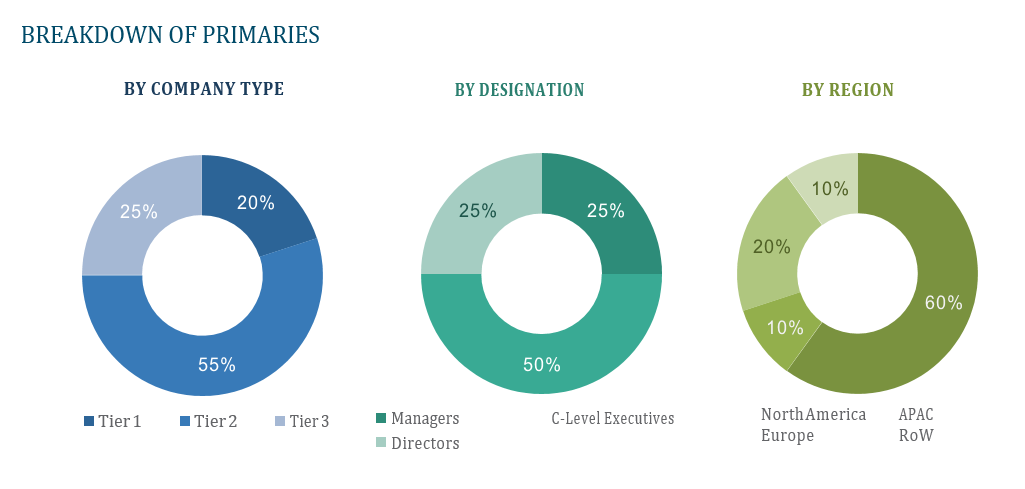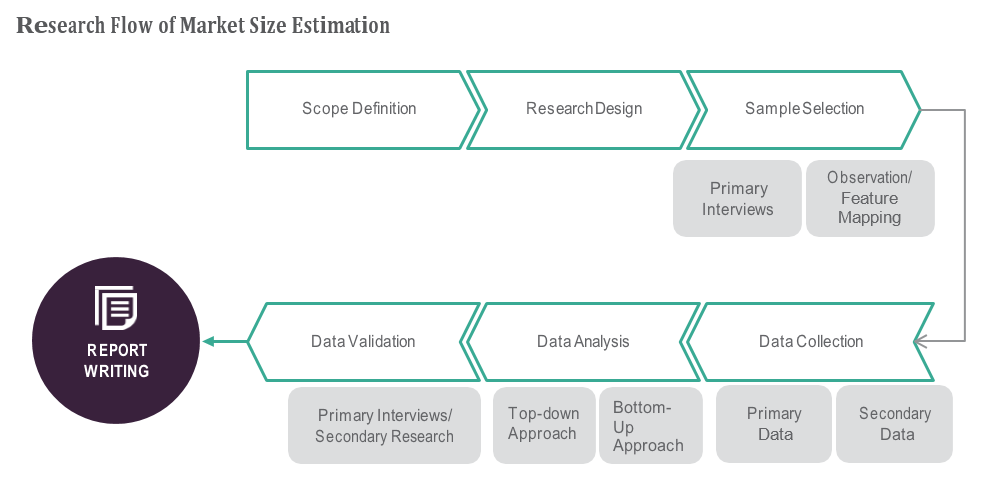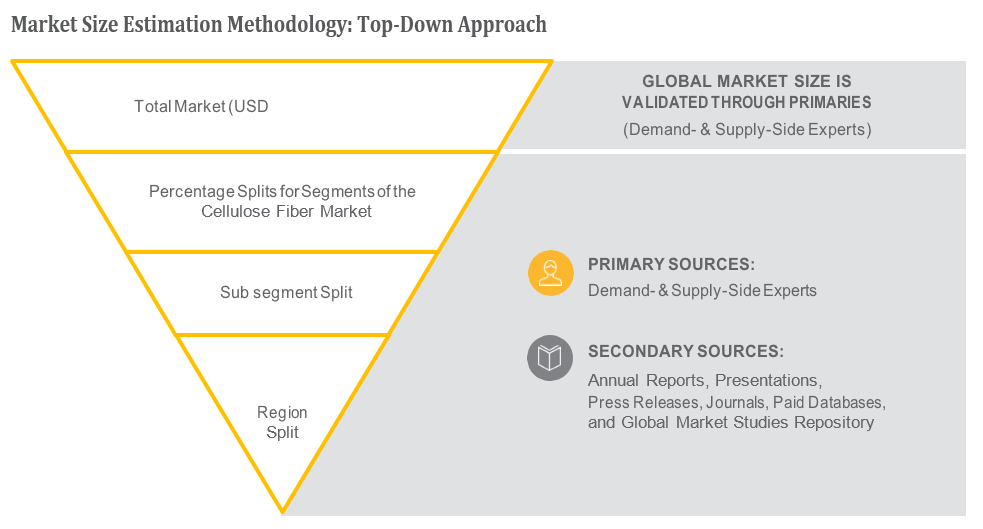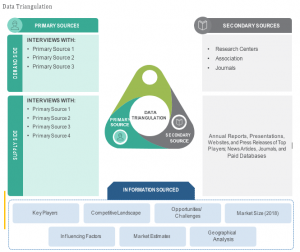OVERVIEW
The Human Capital Management (HCM) Market is projected to experience substantial growth, with its valuation expected to rise from USD 23.4 billion in 2024 to an estimated USD 46.7 billion by 2029, reflecting a CAGR of 14.9% during the forecast period. Human Capital Management solutions encompass a range of technologies and systems designed to manage and optimize an organization’s workforce. These solutions are essential for various sectors, including retail, healthcare, manufacturing, finance, and IT, as they enhance employee productivity, streamline HR processes, and support strategic decision-making.
The market’s growth is driven by the increasing adoption of cloud-based HCM solutions, advancements in AI and machine learning technologies, and the rising demand for workforce analytics. Additionally, the growing focus on improving employee experience, enhancing organizational agility, and supporting digital transformation initiatives is further propelling the market forward. However, challenges such as high implementation costs, data security concerns, and the need for continuous advancements in HCM technology need to be addressed to sustain market growth.
Geographically, North America and Europe dominate the Human Capital Management Market due to their advanced technological infrastructure, significant investments in digital transformation, and high adoption rates of HCM solutions. The Asia Pacific region is also expected to witness substantial growth, driven by rapid urbanization, expanding digital economy, and increasing government initiatives to promote workforce management solutions.
Market Dynamics
Drivers:
The primary driver of the Human Capital Management Market is the increasing adoption of cloud-based HCM solutions. As organizations strive to enhance their HR processes, cloud-based solutions provide the necessary infrastructure to manage and optimize their workforce efficiently. These solutions offer significant benefits, including scalability, flexibility, and cost-efficiency, allowing businesses to streamline HR processes, improve employee productivity, and support strategic decision-making. The growing popularity of remote work, coupled with the need for seamless and user-friendly HCM solutions, is driving the adoption of advanced cloud-based technologies.
Advancements in AI and machine learning technologies are also fueling the growth of the market. Continuous innovations in these technologies are enhancing the capabilities of HCM solutions, making them more effective, reliable, and user-friendly. AI-powered features such as predictive analytics, automated recruitment processes, and employee sentiment analysis improve the overall efficiency and effectiveness of HCM systems. These technologies enable advanced data analytics, real-time decision-making, and personalized employee experiences, providing organizations with the tools they need to manage their workforce effectively. The ongoing technological advancements in HCM solutions are driving their adoption and market growth.
Key Opportunities :
One of the key opportunities in the Human Capital Management Market lies in the growing focus on workforce analytics. Organizations are increasingly adopting workforce analytics to gain insights into employee performance, identify talent gaps, and make data-driven decisions. HCM solutions provide the necessary tools to collect, analyze, and interpret workforce data, enabling organizations to optimize their HR processes, improve employee engagement, and enhance organizational agility. The increasing investment in workforce analytics is driving the demand for advanced HCM solutions that offer high performance, scalability, and flexibility.
Another significant opportunity is the expanding use of HCM solutions in the healthcare and retail sectors. Healthcare providers are adopting HCM solutions to manage their workforce efficiently, ensure compliance with regulatory requirements, and improve patient care. Similarly, retail organizations are using HCM solutions to manage their large and diverse workforce, optimize staffing levels, and enhance customer service. The growing demand for advanced HCM solutions in healthcare and retail sectors is driving the adoption of these technologies, opening new growth avenues for the market.
Restraints:
One of the major restraints in the Human Capital Management Market is the high implementation costs. Deploying comprehensive HCM solutions requires significant investment in hardware, software, and infrastructure. The upfront costs can be a barrier to adoption, particularly for small and medium-sized enterprises (SMEs) with limited budgets. Additionally, the ongoing costs of maintaining and upgrading HCM systems can add to the overall expense, making it challenging for some organizations to justify the investment. Addressing these cost concerns through scalable and cost-effective solutions is crucial for widespread adoption.
Data security and privacy concerns pose additional challenges for the market. As HCM solutions involve the collection and storage of large volumes of employee data, ensuring the security and privacy of this data is critical. The risk of data breaches, unauthorized access, and cyberattacks can undermine user trust and lead to regulatory penalties. Addressing these security concerns through robust encryption, authentication protocols, and compliance with data protection regulations is crucial for the widespread adoption of HCM solutions. Ensuring that businesses and organizations can effectively adopt and benefit from HCM technology is critical to overcoming these challenges and driving market adoption.
Regional Information:
• North America
North America remains a significant market for human capital management solutions, characterized by advanced technological infrastructure, high adoption rates, and substantial investments in digital transformation. The United States is the leading market, driven by the widespread use of HCM solutions in sectors such as finance, healthcare, and retail. The presence of major technology companies and strong governmental support for digital initiatives further supports market growth. Additionally, the increasing focus on enhancing employee experience, improving operational efficiency, and ensuring regulatory compliance is promoting the adoption of HCM solutions. However, data security concerns and high implementation costs require strategic planning and investment to navigate the market landscape effectively.
• Europe
Europe is at the forefront of adopting human capital management technologies, driven by stringent regulatory frameworks, significant investments in digital infrastructure, and a strong focus on innovation. Countries such as Germany, the United Kingdom, and France are leading markets, supported by advanced industrial sectors and well-established HR practices. The European Union’s initiatives to promote digital transformation, enhance workforce management, and support technological innovation are further fueling the demand for HCM solutions. The region’s commitment to improving operational efficiency, enhancing employee experience, and supporting green technologies is also driving the adoption of HCM systems for sustainable and efficient workforce management practices. However, economic uncertainties and regulatory challenges necessitate strategic planning and risk management to navigate the market landscape effectively.
• Asia Pacific
The Asia Pacific region is expected to witness the highest growth rate in the Human Capital Management Market due to rapid urbanization, expanding digital economy, and increasing government initiatives to promote workforce management solutions. Countries like China, Japan, and India are investing heavily in advanced HCM technologies and digital infrastructure, driving the demand for advanced HCM solutions. The region’s growing population and rising demand for efficient workforce management are contributing to the increased adoption of HCM technology in various applications. Additionally, the presence of major electronics and technology manufacturers and the availability of affordable HCM solutions are enhancing the market’s potential. Governments in the region are also implementing policies and providing incentives to promote the use of advanced HCM technologies, creating a favorable environment for market growth.
Recent Developments:
Workday launched Manager Insights Hub. The Workday Manager Insights Hub is a new solution designed to enhance the manager experience by providing timely and personalized insights and recommended actions within their workflow. Leveraging AI and ML technologies, it surfaces automated recommendations related to team time off, employee skills, sentiment, goals, and more, empowering managers to make informed decisions and effortlessly facilitate their teams’ career growth and development.
UKG and PayPal collaborated to enable individuals paid through UKG to direct deposit earnings into PayPal Balance accounts, offering flexibility and faster access to wages. This industry-first partnership highlights UKG’s commitment to providing people-centric experiences in HR solutions.
Key market Players:
SAP SuccessFactors, Oracle Corporation, ADP, LLC, and Ceridian HCM, Inc.
Frequently Asked Questions
1) What is the projected market value of the Human Capital Management Market?
– The Human Capital Management Market is expected to reach an estimated value of USD 46.7 billion in revenue by 2029.
2) What is the estimated CAGR of the Human Capital Management Market over the 2024 to 2029 forecast period?
– The CAGR is estimated to be 14.9% for the Human Capital Management Market over the 2024 to 2029.
3) Who are the key players in the Human Capital Management Market?
– SAP SuccessFactors, Oracle Corporation, ADP, LLC, and Ceridian HCM, Inc.
4) What are the drivers for the Human Capital Management Market?
– The primary drivers for the Human Capital Management Market include the increasing adoption of cloud-based HCM solutions, advancements in AI and machine learning technologies, and the rising demand for workforce analytics. These factors are contributing to the widespread adoption of HCM solutions, as they offer significant benefits in terms of performance, scalability, and operational efficiency.
5) What are the restraints and challenges in the Human Capital Management Market?
– High implementation costs and data security and privacy concerns are significant challenges for the Human Capital Management Market. Addressing these issues through scalable and cost-effective solutions, robust security measures, and comprehensive planning is crucial for the sustained growth of the market. Ensuring that businesses and organizations can effectively adopt and benefit from HCM technology is essential to overcoming these challenges and driving market adoption.
6) What are the key applications and offerings of the Human Capital Management Market?
– Human Capital Management solutions are essential in retail for managing employee schedules, optimizing staffing levels, and enhancing customer service. They are widely used in healthcare to manage workforce compliance, improve patient care, and ensure efficient staff allocation. In manufacturing, HCM systems facilitate workforce planning, training, and performance management. Additionally, these solutions support the IT sector by enabling efficient talent acquisition, employee engagement, and workforce analytics.
7) Which region is expected to drive the market for the forecast period?
– Asia pacific is expected to have the highest market growth from 2024 to 2029
Why Choose Us?
Insights into Market Trends: Global Market Studies reports provide valuable insights into market trends, including market size, segmentation, growth drivers, and market dynamics. This information helps clients make strategic decisions, such as product development, market positioning, and marketing strategies.
Competitor Analysis: Our reports provide detailed information about competitors, including their market share, product offerings, pricing, and competitive strategies. This data can be used to inform competitive strategies and to identify opportunities for growth and expansion.
Industry Forecasts: Our reports provide industry forecasts, which will inform your business strategies, such as investment decisions, production planning, and workforce planning. These forecasts can help you to prepare for future trends and to take advantage of growth opportunities.
Access to Industry Experts: Our solutions include contributions from industry experts, including analysts, consultants, and subject matter experts. This access to expert insights can be valuable for you to understand the market.
Time and Cost Savings: Our team at Global Market Studies can save you time and reduce the cost of conducting market research by providing comprehensive and up-to-date information in a single report, avoiding the need for additional market research efforts.









